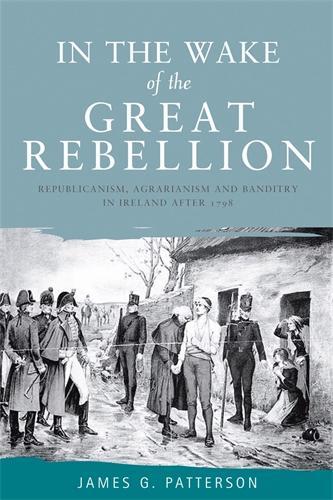
In the Wake of the Great Rebellion: Republicanism, Agrarianism and Banditry in Ireland After 1798
(Paperback)
Available Formats
Publishing Details
In the Wake of the Great Rebellion: Republicanism, Agrarianism and Banditry in Ireland After 1798
By (Author) James Patterson
Manchester University Press
Manchester University Press
3rd May 2011
United Kingdom
Classifications
Physical Properties
Paperback
208
Width 156mm, Height 234mm
Description
On Monday 19 September 1803, the most significant trial in the history of Ireland took place in Dublin. At the dock stood a twenty-five year old former Trinity College student and doctor's son. His name was Robert Emmet and he was standing trial for heading a rebellion on 23 July 1803. The iconic power of Robert Emmet in Irish history cannot be overstated. Emmet looms large in narratives of the past, yet the rebellion, which he led, remains to be fully contextualised. Patterson's book repairs this omission and explains the complex process of politicisation and revolutionary activity extending into the 1800s. He details the radicalisation of the grass roots, their para-militarism and engagement in secret societies. Drawing on an intriguing range of sources, Patterson offers a comprehensive insight into a relatively neglected period of history. This work is of particular significance to undergraduate and post-graduate students and lecturers of Irish history. -- .
Reviews
This is a significant book based on impressive and pioneering archival research and will be required reading for anyone interested in late eighteenth-century and pre-famine Ireland. By showing the potent and complex ways that radical politics survived at a popular level throughout post-1798 Ireland, Pattersons study forces historians to reassess the roles played by sectarianism and agrarian protest in Ireland before the famine. These are important subjects and we have Patterson to thank for bringing them back to our attention. -- .
Author Bio
James G. Patterson is an Associate Professor of History at Centenary College of New Jersey
